-
 +4 +1
+4 +1Slovenia's Beautiful Beehives Turn Apiaries Into Art
Dating back to the 18th century, AŽ hive panels depict stories of marriage, damnation, and daily life.
-
 +17 +1
+17 +110,000 bees ground a CHP helicopter. A beekeeper comes to the rescue
Almost 10,000 bees swarmed a California Highway Patrol helicopter last week, leaving officers scrambling for how to safely respond.
-
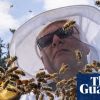 +36 +1
+36 +1Five million bees escape after crates of hives fall off truck in Canada
Beekeepers at site near Toronto in Ontario eventually managed to recapture most of the insects, although some remained on the loose
-
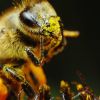 +22 +1
+22 +1Bees can do so much more than you think – from dancing to being little art critics
We all know bees are vital pollinators. But they’re also art critics, social learners, dancers and so much more.
-
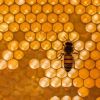 +19 +1
+19 +1‘Bees are sentient’: inside the stunning brains of nature’s hardest workers
When Stephen Buchmann finds a wayward bee on a window inside his Tucson, Arizona, home, he goes to great lengths to capture and release it unharmed. Using a container, he carefully traps the bee against the glass before walking to his garden and placing it on a flower to recuperate.
-
 +16 +1
+16 +1Be kind to bees, build with bee bricks
We know that bees are important to natural ecosystems and also to human agriculture and horticulture. They are great pollinators of so plant flowering plant species and are also a source of food and materials we have used for thousands of years, namely honey, honeycomb, and beeswax.
-
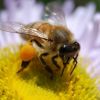 +11 +1
+11 +1'Shameful': UK Approves 'Emergency' Use of Banned Bee-Killing Pesticide
Biodiversity defenders have sounded the alarm about the United Kingdom government's Monday decision to provide another so-called "emergency" exception for the use of an outlawed neonicotinoid pesticide lethal to bees.
-
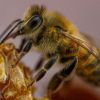 +12 +1
+12 +1A biotech firm says the U.S. has approved its vaccine for honeybees
The federal government has granted a conditional license for a honeybee vaccine, the developer of the drug announced Wednesday. The vaccine will be used to help fight American Foulbrood disease in the insects and was approved by the Department of Agriculture, Dalan Animal Health, the biotech company behind the vaccine, said.
-
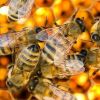 +4 +1
+4 +1US approves world’s first vaccine for declining honey bees
The US has approved use of the world's first vaccine for honey bees. It was engineered to prevent fatalities from American foulbrood disease, a bacterial condition known to weaken colonies by attacking bee larvae. The US Department of Agriculture (USDA) approved a conditional license for the vaccine this week, according to the biotech firm behind its development.
-
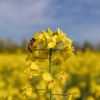 +27 +1
+27 +1Shortage of pollinators could be killing 427,000 people a year
Inadequate numbers of bees and other pollinators have a huge impact on human health due to lower production of fruit and vegetables, according to a modelling study
-
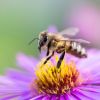 +11 +1
+11 +1Is Honey Vegan? Everything You Need to Know About Why Bees Make Honey
Is honey vegan? It tends to be a sticky subject. Here’s what you need to know about why bees make honey and whether or not it’s ethical to eat.
-
 +12 +1
+12 +1How To Speak Honeybee
Advanced technologies like A.I. are enabling scientists to learn that the world is full of intelligent creatures with sophisticated languages, like honeybees. What might they tell us?
-
 +7 +1
+7 +1Honey bee life spans are 50% shorter today than they were 50 years ago
A new study by University of Maryland entomologists shows that the lifespan for individual honey bees kept in a controlled, laboratory environment is 50% shorter than it was in the 1970s. When scientists modeled the effect of today's shorter lifespans, the results corresponded with the increased colony loss and reduced honey production trends seen by U.S. beekeepers in recent decades.
-
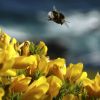 +14 +1
+14 +1If bumblebees can play, does it mean they have feelings? This study suggests yes
When put to the test, bees have proved over and over again that they've got a lot more to offer than pollinating, making honey and being fiercely loyal to a queen. The industrious insects can count and alter their behavior when things seem difficult, and now some scientists say there's proof they also like to play.
-
 +19 +1
+19 +1How robotic honeybees and hives could help the species fight back
Robots that can monitor conditions in a hive, do a waggle dance, or even infiltrate the queen’s court could help scientists influence the health of a colony.
-
 +13 +1
+13 +1Buzz stops: bus shelter roofs turned into gardens for bees and butterflies
Butterflies and bees are getting their own transport network as “bee bus stops” start to pop up around UK cities and across Europe. Humble bus shelter roofs are being turned into riots of colour, with the number of miniature gardens – full of pollinator-friendly flora such as wild strawberries, poppies and pansies – set to increase by 50% in the UK by the end of this year.
-
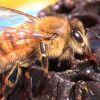 +12 +1
+12 +1Wild Bees Could Die Out Due To Climate Change, Swiss Beekeeper Warns
A Swiss beekeeper has warned that some wild bee species could go extinct due to the long-term effects of global warming. All other species of bees apart from the honey bee are commonly referred to as wild bees. They do not produce beeswax or honey but do collect pollen to feed their young.
-
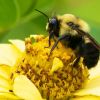 +17 +1
+17 +1Bumblebees kept in isolation make up for it by being more social later
Princeton researchers studied the Common Eastern Bumblebee to learn how social isolation impacts behavior and brain development.
-
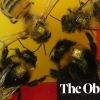 +12 +1
+12 +1‘Bees are really highly intelligent’: the insect IQ tests causing a buzz among scientists
We all know these busy insects are good for crops and biodiversity, but proof is emerging that they are also clever, sentient and unique beings
-
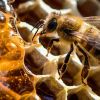 +12 +1
+12 +1Hear me out – we could use the varroa mite to wipe out feral honey bees, and help Australia's environment
The varroa mite’s arrival in Australia was only a matter of time. We could benefit from one pest fighting another.
Submit a link
Start a discussion




















